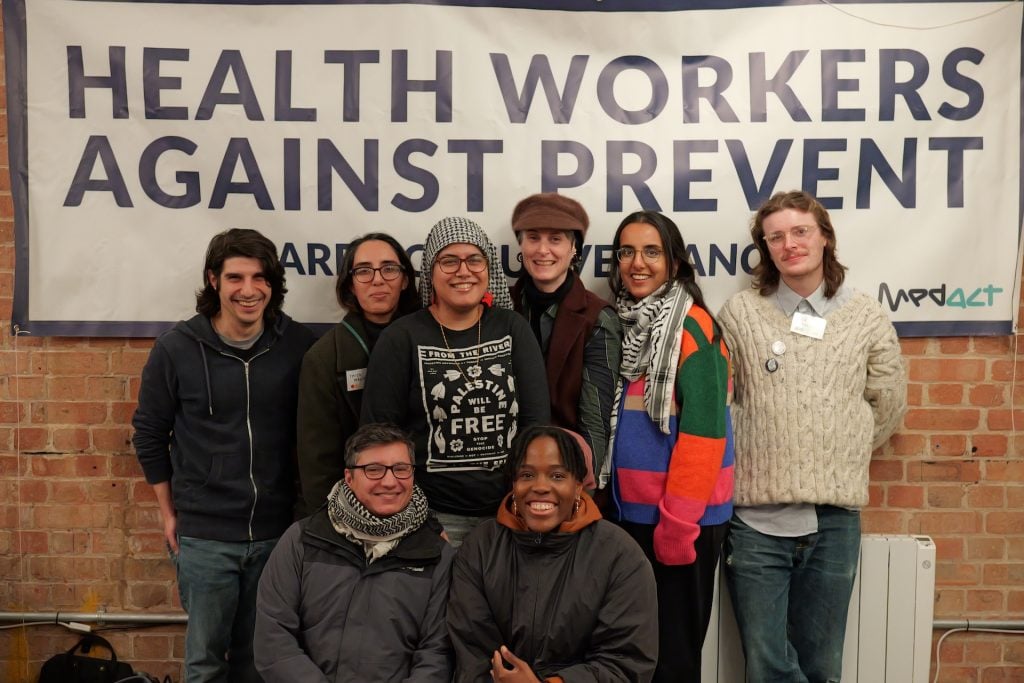
The Abolitionist Approaches to Health Group (originally named the ‘Securitisation of Health Group’) is a space for health workers and campaigners to challenge policing, criminalisation and securitisation practices within and beyond sites of healthcare.
The group’s priority campaign is calling for the repeal of Prevent in the NHS. The AAHG meet online each month with alternating focuses: (i) welcoming new joiners, and providing some campaign updates (ii) delving into the campaigning work, and providing some political education on abolitionist approaches to health. We organise as three working groups: Workshops & Public Engagement, Policy & Lobbying, FOIs and Research.
The group meets regularly online to develop educational resources, research, mutual support tools and advocacy projects. Currently, group members are focusing on challenging the Prevent counter-extremism policy in the NHS, and health workers and others concerned about this policy in healthcare are welcome to get involved in the group’s work.
If you can’t make it along, but are keen to get involved before the next group meeting, book a 121 with our Campaign Lead, Sarah, or be in touch over email – [email protected]!
Group Statement of Aims and Values
We are a group of health workers, students, campaigners and people impacted by Prevent who seek to collectively work to repeal the Prevent duty in the NHS.
We are committed to raising awareness of Prevent’s damaging impact in health care and support those that challenge its implementation across the public sector, such as education and social care, through educational campaigns.
Our key concerns are:
- the damaging impact on care and treatment of patients and their families, especially those from Black, People of Colour, and Muslim communities;
- the structural racism Prevent legitimates through community policing and pervasive surveillance under the guise of safeguarding;
- the irreparable damage to relationships of trust that has lead to people disengaging from the service, exacerbating health inequalities;
- the lack of transparency around the way in which the data of those referred, including patients, are held and used;
- the lack of evidence for Prevent’s efficacy and the well evidenced harm that it causes by undermining confidentiality and trust;
- challenging the inclusion of NHS policies founded on political grounds and moral panics, rather than evidence-based research.
The effects of Prevent in healthcare also lead to a ‘chilling effect’, making it difficult to raise concerns or challenge the policy in the workplace. As such, as a group, we seek to support each other to be able to speak out and take action.
